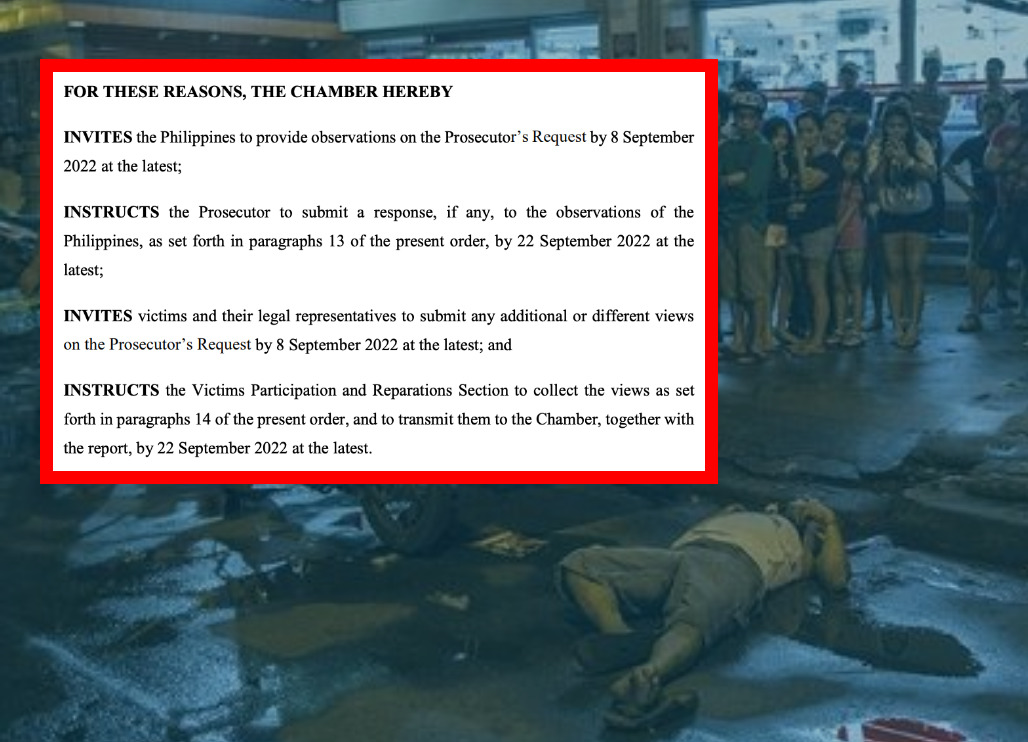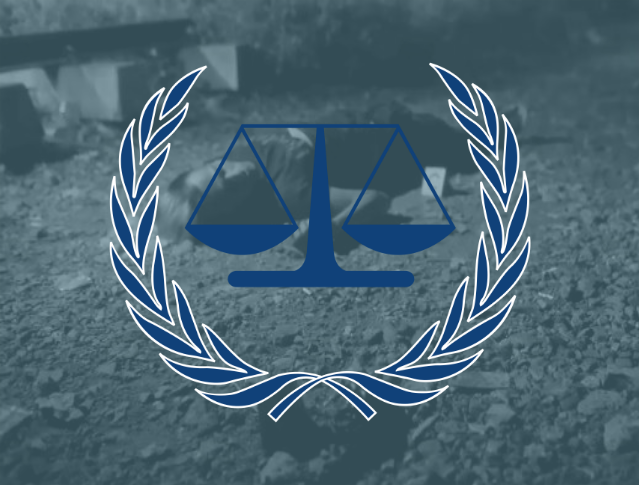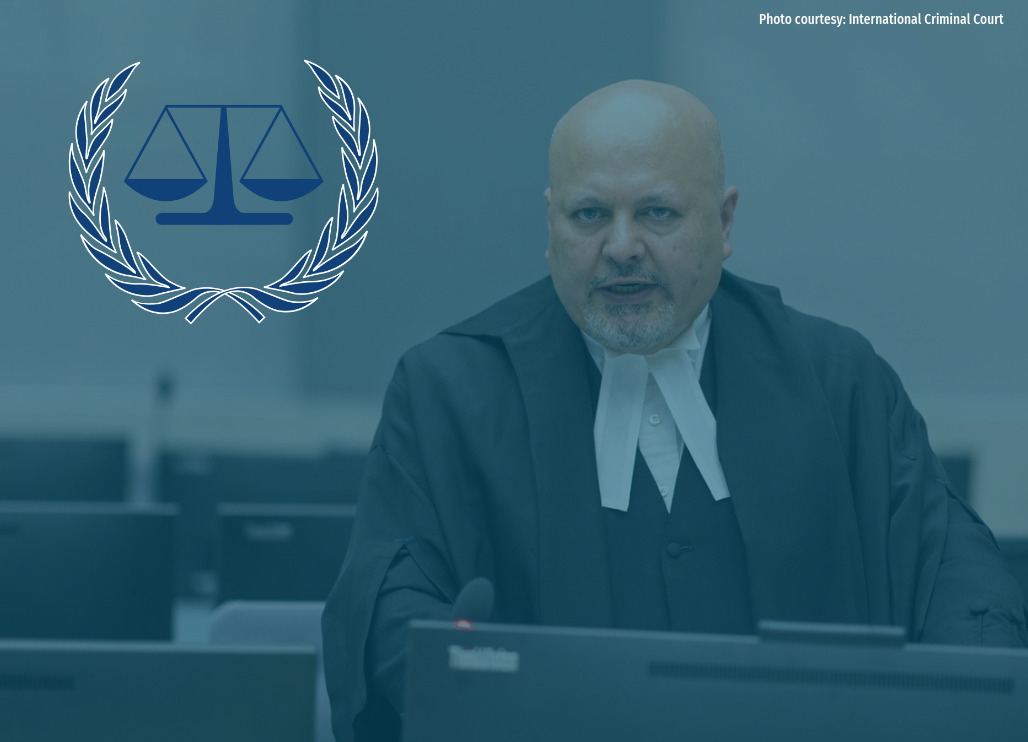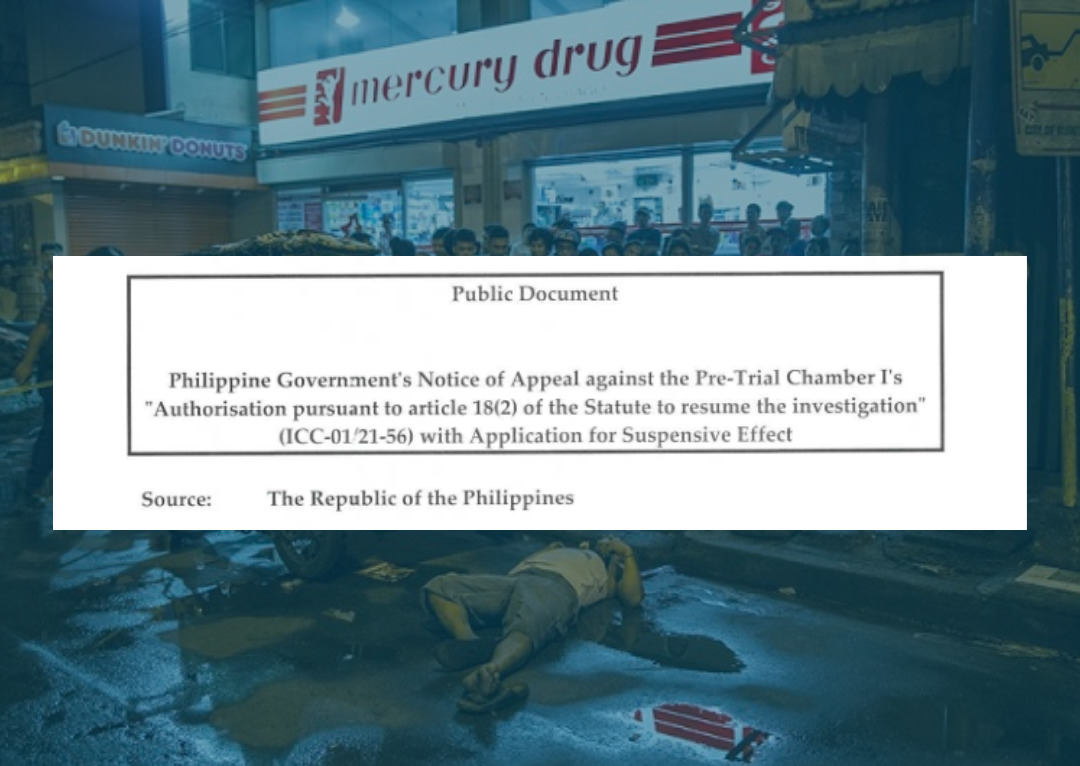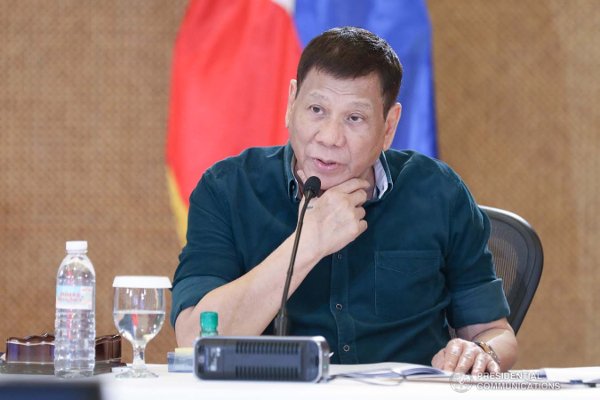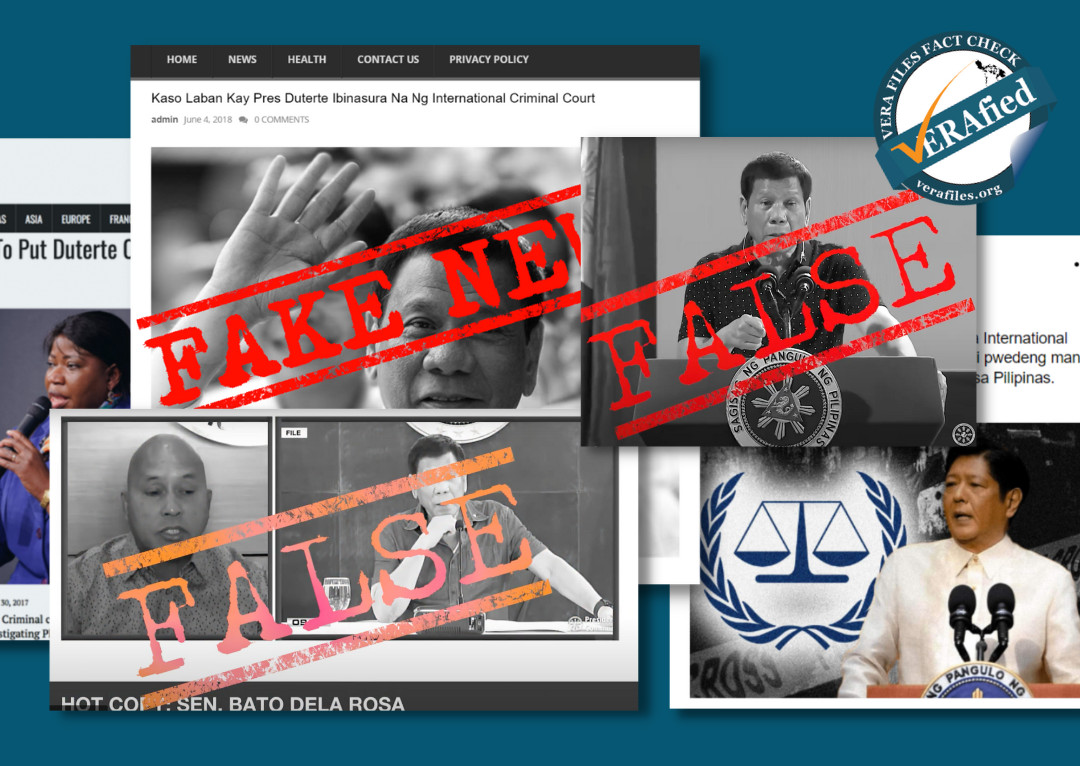The Pre-Trial Chamber I of the International Criminal Court (ICC) issued an order requesting both the Philippine government and victims of its “war on drugs” to submit comments on the request of Prosecutor Karim Khan to resume the drug war probe.
In a seven-page document dated July 14, the chamber said that Khan made the request to allow drug war victims to raise their “views and concerns” regarding his June 24 request to relaunch the probe into alleged crimes against humanity in the government’s anti-drug campaign. (See Rights groups cheer on ICC call for resumption of probe on Duterte’s drug war; Palace ‘exasperated’)
“In this regard, the Prosecutor submits that the Chamber ‘should allow victims to make written submissions on issues arising from this Request through their legal representatives and/or OPCV [Office of Public Counsel for Victims]’, based on the fact that the ‘interests of victims may be affected as a result of this litigation’,” the chamber stated.
Victims have until Sept. 8 to submit their comments to the Victims Participation and Reparations Section (VPRS), an independent office of the ICC. VPRS will then collate and hand in the submissions along with a report to the chamber on Sept. 22.
As most casualties of the drug war are already dead, the victim’s booklet of the VPRS provides that family members who suffered from harm, such as emotional trauma or material loss, due to the killing of their relatives are also considered victims. (See VERA FILES FACT SHEET: Five things about the ICC report on victims’ representations)
It is not the first time the ICC has sought comments from drug war victims. In June 2021, Khan’s predecessor, Fatou Bensouda, issued a notice one day before her retirement as prosecutor for victims to submit their views on whether or not the drug war needs investigating. (See ICC begins accepting information on Duterte’s drug war)
From June 15 to Aug. 13, 2021, the VPRS received 202 forms representing approximately 1,530 individual victims and 1,050 families, with a majority expressing “overwhelming support” for Bensouda’s request to initiate a drug war probe. A month later, the chamber authorized the launch to an investigation in September 2021. (See ICC authorizes full-blown probe into Duterte’s drug war)
Retired Filipino ICC judge Raul Pangalangan elucidated on this initiative of the Netherlands-based court to hear the sentiments of the victims in a briefing last year. “Please note that a cornerstone of the Rome Statute is focused on the victims. Both in terms of the victim[‘s] reparations and also in terms of victims’ participation,” he said.
Meanwhile, the government can submit “additional observations” on Khan’s request “if it wishes to do so,” by Sept. 8.
Should the government submit any observation, Khan has until Sept. 22 to respond to any “factual arguments” on whether the state is “investigating or has investigated its nationals or others within its jurisdiction” on any crimes punishable by the ICC.
On the other hand, there is no requirement for the government to reply to the prosecutor’s submissions.
The chamber further does not deem necessary to hold a hearing on the submissions of the victims, the government and the prosecutor.
The call for comments by the chamber only refers to the request to resume the Khan investigation, and not for any pending trial of a suspect in the Netherlands-based court.
Khan’s investigation was suspended temporarily in November 2021 after the Philippine government requested him to defer to local proceedings and investigation. (See ICC prosecutor: Gov’t request to defer drug war probe must be backed with ‘substantial’ evidence)
On June 24, the ICC prosecutor announced that he requested the chamber to allow the resumption of the probe after the government failed to convince him that they were investigating all allegations of crimes against humanity in relation to the drug war.
The probe covers alleged extrajudicial killings that occurred in Davao region as early as November 2011 perpetuated by law enforcers and vigilantes such as the so-called “Davao Death Squad”, and the deaths of around 12,000 to 30,000 Filipinos between July 2016 and March 16, 2019 under the drug war of former President Rodrigo Duterte.
In a recent interview, Justice Secretary Jesus Crispin Remulla said the role of the ICC if it wants to enter the Philippines for an investigation must be viewed from the perspective that the country has already withdrawn as a member. The ICC, however, has clarified that it retains jurisdiction on all crimes that occurred in the country during its membership from November 2011 to March 2019.
Read the Pre-Trial Chamber’s order here.
